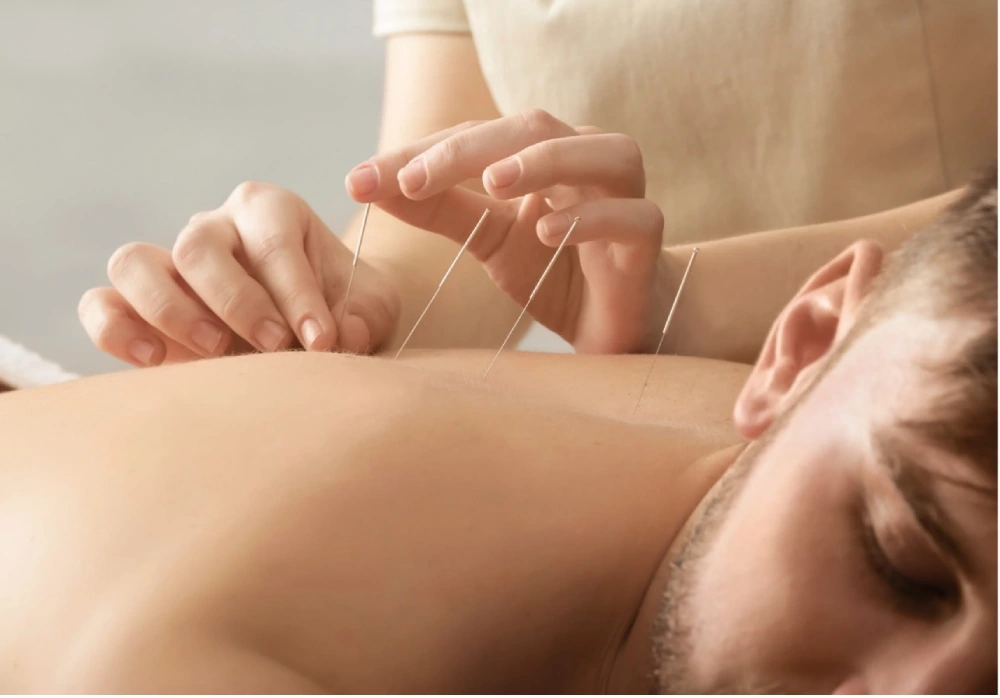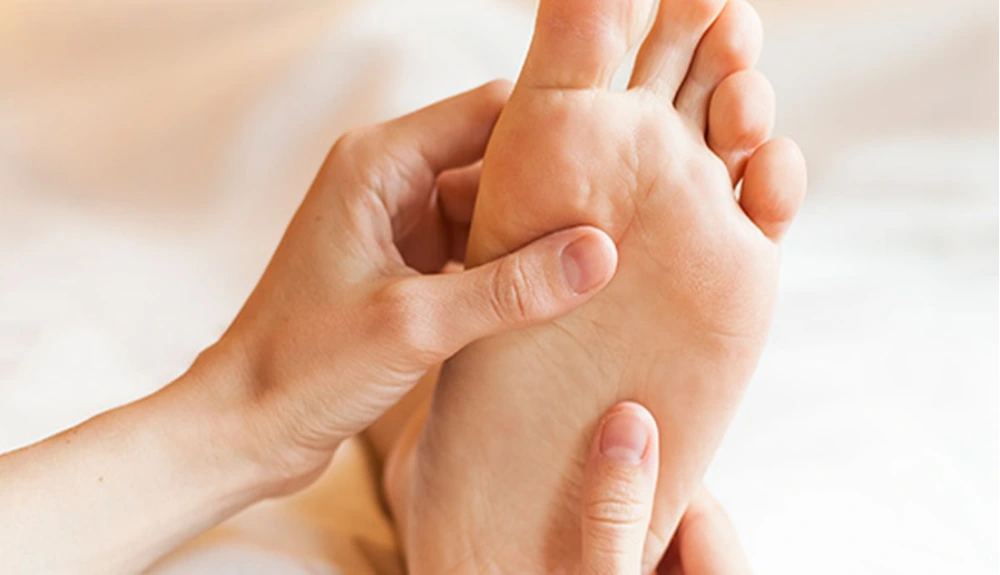Anxiety and stress are common in today’s fast-paced society, affecting millions of people’s lives globally. Even while traditional therapies provide comfort, many people look for alternate ways to manage chronic problems. Stress and anxiety can be effectively reduced by acupuncture, an ancient technique with roots in traditional Chinese medicine. This article examines the science underlying acupuncture to reduce stress, as well as the particular acupressure spots that are useful for reducing stress. It also discusses the potential side effects of west vancouver acupuncture therapy and its benefits for anxiety management.

Understanding Acupuncture for Stress Relief
Thin needles are inserted into certain body spots during the therapeutic practice of acupuncture anxiety relief sessions, which has its roots in ancient China. These points are said to correspond to meridians, or energy pathways, that carry Qi, or life force, in traditional Chinese medicine. Acupuncture stimulates these points in an attempt to bring the body back into harmony and balance, which helps with a lot of mental and physical issues, including stress.
It has been demonstrated that acupuncture stimulates the release of serotonin, a neurotransmitter linked to mood control, and endorphins, the body’s natural painkillers. Furthermore, by affecting the hypothalamic-pituitary-adrenal (HPA) axis and lowering cortisol levels, the main stress hormone, acupuncture will regulate the body’s stress response.
Exploring Acupressure Points for Stress Relief
Acupressure is a closely related technique to acupuncture that uses pressure applied to certain acupuncture points to induce relaxation and release tension. The Shenmen point (HT7) on the wrist, the Yin Tang point (EX-HN3) between the eyebrows, and the Neiguan point (PC6) on the inner forearm are a few of the important acupressure points to reduce stress.
People can induce a state of calm and relaxation by gently massaging or putting pressure on these points, which will increase the flow of qi and activate the body’s innate healing mechanisms.
Acupuncture Benefits for Anxiety
Anxiety disorders are among the most common mental health conditions, affecting millions of individuals worldwide. Some of the anxiety acupuncture benefits include:
· Neurochemical Impact
It increases the release of endorphins, natural pain-relieving chemicals promoting well-being.
· Therapeutic Environment
Acupuncture provides a calming feeling and one-on-one interaction, reducing anxiety.
· Neurotransmitter Modulation
It can adjust serotonin and dopamine levels, regulating mood and emotion. It also induces calmness and mental clarity by lessening anxiety symptoms.
· Safety
It is generally safe when administered by a trained practitioner, offering non-pharmaceutical options with minimal risk.
Acupuncture, an ancient Chinese therapy, uses thin needles to restore balance and reduce stress by stimulating natural chemicals in the body. It’s safe and effective for anxiety relief when done by professionals.
Understanding the Mechanisms of Acupuncture for Anxiety Relief
To understand acupuncture benefits for stress we must know its mechanism. Acupuncture targets particular acupuncture points linked to the reduction of anxiety, such as the Spleen 6 (SP6) point, which promotes relaxation and regulates emotions, and the Pericardium 6 (PC6) point, which is well-known for its calming effects. Acupuncture stimulates these points, which triggers the body’s parasympathetic nervous system and encourages the release of endorphins, resulting in a deeply relaxed state and a reduction in anxiety symptoms.
Moreover, studies have demonstrated that acupuncture can increase the release of beta-endorphins, which have calming effects, and control the activity of the amygdala, a part of the brain linked to emotion processing and stress reactions.
What Happens in Each Session?
There are some steps of administering acupuncture to reduce stress:
- Assessment
This step includes recognizing the unique anxiety symptoms and concerns of the individual.
- Insertion of Needle
HT7 and EX-HN3, two acupuncture points on the body that are well-known for their ability to reduce stress, are the sites into which thin needles are carefully put.
- Relaxation
After the needles are inserted, the patient is given 15 to 30 minutes to rest. During this time, they could feel at ease and relaxed.
- Extra Techniques
To improve the treatment’s ability to reduce anxiety, some practitioners may add extra techniques like moxibustion or acupressure.
- Rebalancing Energy Flow
To reduce anxiety symptoms, the session’s objectives are to regulate the nervous system and bring the body’s energy flow back into equilibrium.
- Follow-Up
To sustain the advantages of acupuncture for anxiety alleviation, the practitioner may advise follow-up appointments or offer advice on self-care measures following the session.
Acupuncture reduces anxiety by targeting specific points, triggering relaxation and endorphin release, with sessions involving assessment, needle insertion, relaxation, optional techniques, energy flow regulation, and follow-up for lasting benefits.

Exploring the Side Effects of Acupuncture for Anxiety
Rather than its benefits, let’s explore the side effects of acupuncture for anxiety.
- Mild, transient soreness or bruises at the sites of needle insertion.
- After a workout, fatigue or lightheadedness passes rapidly.
- Risk of infection if sterile needles are used or appropriate hygiene procedures are not followed.
- Rare cases of nerve injury or pierced organs, typically brought on by unskilled practitioners or improper needle insertion.
- In rare instances, a possible worsening of symptoms, especially if underlying medical disorders are not correctly evaluated beforehand.
- Acupuncture may induce bleeding or bruises; caution is suggested for persons with bleeding disorders or those using blood thinners.
Integrating Acupuncture into a Holistic Wellness Routine
Acupuncture is often considered a valuable component of holistic wellness, offering a complementary approach to managing anxiety alongside practices like meditation, yoga, and mindfulness. By integrating acupuncture to reduce stress into one’s self-care routine, individuals may enhance their overall sense of balance and harmony, fostering better mental and emotional health. This ancient Chinese therapy works by stimulating specific points in the body to regulate the flow of energy and promote relaxation. As a result, acupuncture can help alleviate symptoms of anxiety and stress, contributing to a more integrated approach to overall well-being.
Acupuncture for anxiety may cause mild soreness, fatigue, infection risk, or rare nerve injury, urging caution. Integrated with meditation and yoga, it complements wellness, promoting relaxation for emotional health.
Conclusion
Acupuncture to reduce stress offers a safe and natural method of lowering anxiety and tension, giving people a comprehensive substitute for traditional therapies. Acupuncture can help reduce the symptoms of stress and anxiety and enhance the general quality of life by focusing on particular acupuncture points and encouraging balance and relaxation within the body. Acupuncture continues to be a useful technique for fostering mental and emotional well-being in today’s hectic society as long as research on its effectiveness is conducted. Book an appointment for massage therapy or acupuncture from the website.
Acupuncture to Reduce Stress in West Vancouver Clinic
A safe and effective way to reduce stress is provided by acupuncture at West Vancouver Clinic. Our practitioners seek to induce calm and release tension in the body by inserting tiny needles at special points. We provide a comprehensive solution for our patients by combining our current understanding of stress management with Chinese medicine. Our clinic aims to provide a relaxing atmosphere where clients can experience the benefits of acupuncture and acupressure on their journey toward enhanced well-being and stress relief. Our trained practitioners emphasize personalized care and attention to individual needs. Call us today to set an appointment.